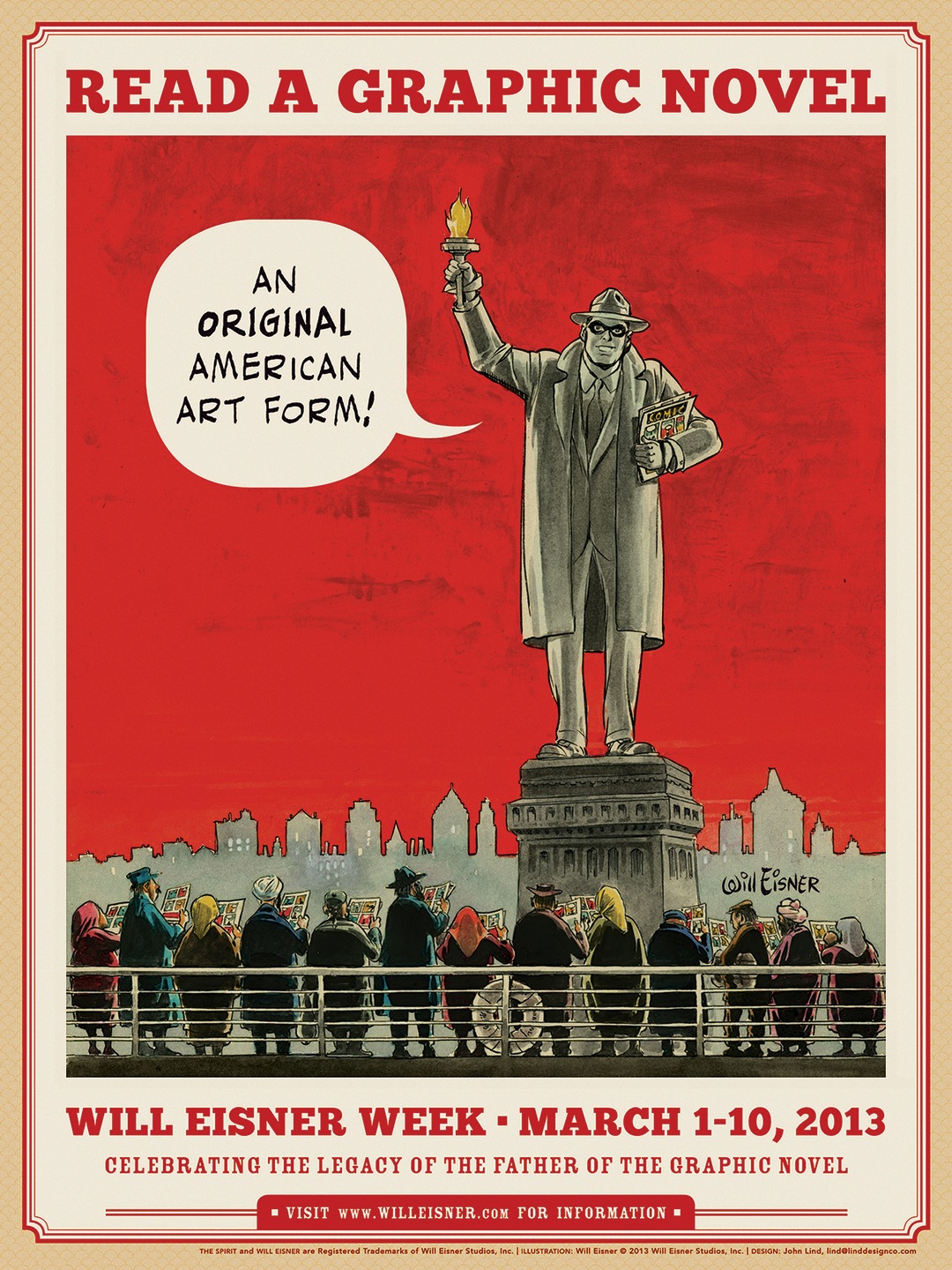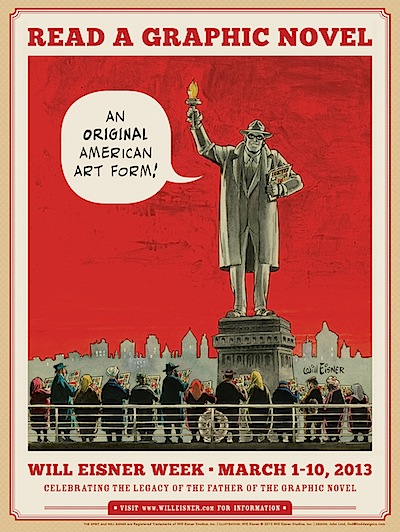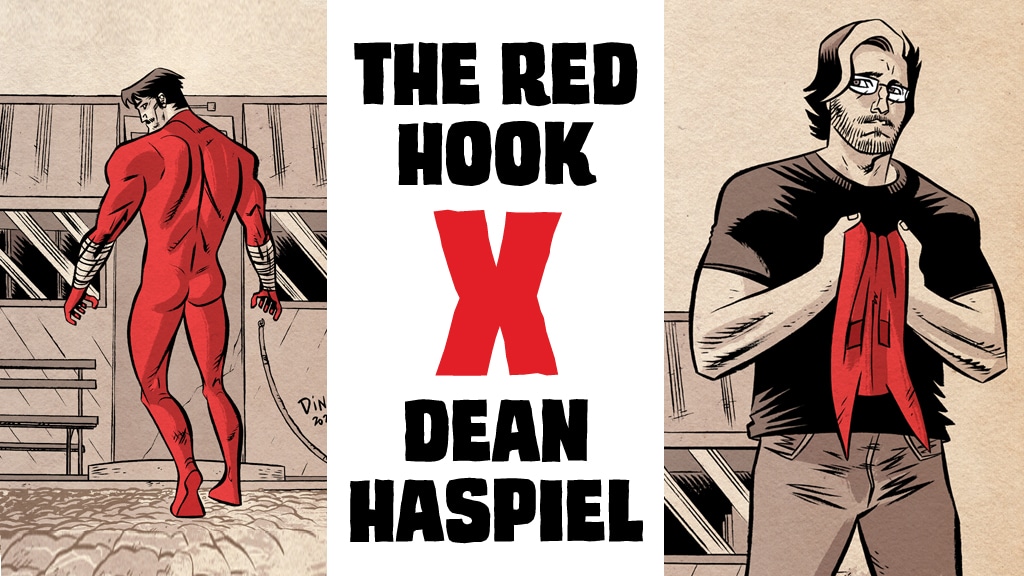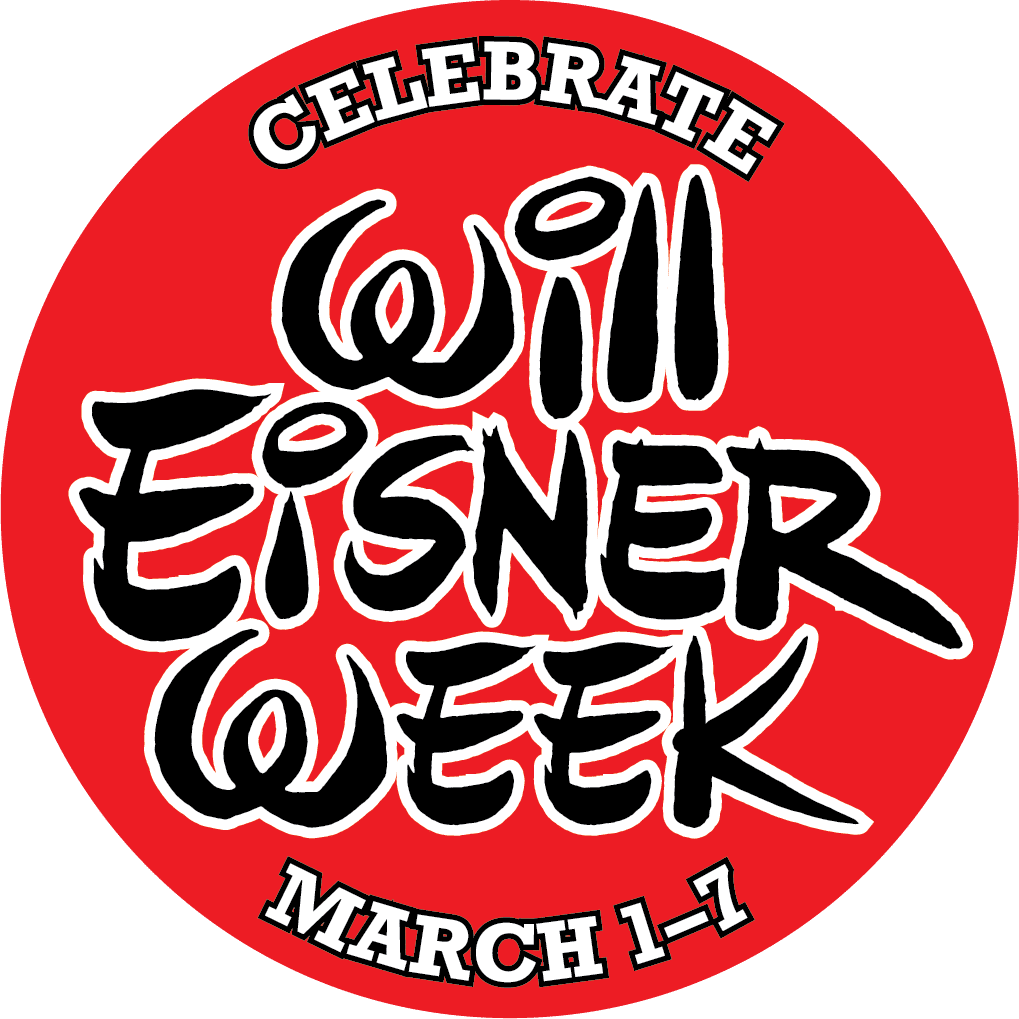It’s more than a week, but not quite a fortnight: from March 1-10 Will Eisner Week will be celebrated nationwide with events promoting reading graphic novels and celebrating the man most associated with pioneering the form.
That’s pretty damn cool. Much more info in the link, but here are the basics:
The Will and Ann Eisner Family Foundation is proud to announce Will Eisner Week 2013, a ten-day series of events in more than a dozen cities nationwide that celebrates graphic novels, free speech awareness, and the career and legacy of Will Eisner, one of the most innovative figures in the history of comics and graphic novels.
Will Eisner Week’s theme this year is, “Read a Graphic Novel,” which will be the underlying message of all the events. Cities holding celebrations include New York, Los Angeles, San Francisco, Boston, Seattle, and Minneapolis.
Will Eisner Week 2013 has added significance, as it marks 35 years since the 1978 publication of Eisner’s groundbreaking graphic novel, “A Contract With God.”
“This year, we will be having Will Eisner Week celebrations in more places than ever before,” said Will Eisner Week Organizing Committee Chair Danny Fingeroth. “The people doing the events are planning some amazing happenings that will spread the word about how cool graphic novels are, and that celebrate Will Eisner’s astonishing body of work done over a career that spanned seven decades.”
Will Eisner Week 2013 events include:
March 1-15, SAVANNAH, GA: Savannah College of Art and Design will hold several events run by Professor David Duncan, including a March 2 screening of “Will Eisner: Portrait of a Sequential Artist” and various Eisner-themed art sessions.
March 2, 4:00-4:55 PM, SEATTLE, WA: Emerald City Comic Convention panel: Eisner’s “A Contract With God—Reflections on the 35th Anniversary,” featuring Dennis O’Neil, Batton Lash, Matt Fraction, Jackie Estrada, and Ben Saunders.
March 3-10, PITTSBURGH, PA: Various events at the Toonseum, including a screening of the documentary “Will Eisner: Portrait of a Sequential Artist” by Andrew & Jon Cooke on March 6.
March 4-8, ARKADELPHIA, AR: The Comics Arts Club of Henderson State University, under the direction of Professor Randy Duncan, will study Eisner’s work in the context of Immigrant Experience Focus Week.
March 6: 7:30 PM, PORTLAND, OR: The Art Institute of Portland: Lecture on Eisner by Dark Horse Editor Diana Schutz.
March 7, 6:30-9:30 PM, NEW YORK, NY: The Society of Illustrators hosts a Will Eisner Sketch Night.
March 7, 7:00-9:00 PM, SAN FRANCISCO, CA: The Cartoon Art Museum. An Evening With Mario Hernandez, including a discussion of Eisner’s influence.
March 7, 7:30 PM, PORTLAND, OR: The Jack London Bar. A reading of Eisner’s “Last Day in Vietnam,” with Brian Bendis, Matt Fraction, Kelly Sue DeConnick, Michael Oeming, and Dylan Meconis.
March 7, 7:00-9:30 PM, BOSTON, MA: Tufts University. Screening of “Will Eisner: Portrait of a Sequential Artist,” followed by a panel discussion including A. David Lewis, Chuck Henebry, and Stephen Weiner.
March 10, 1:00-4:00 PM, MINNEAPOLIS, MN: Minneapolis College of Art and Design hosts a Graphic Novel Read-In, featuring a screening of “Will Eisner: Portrait of a Sequential Artist.”
March 11, 7:00-9:00 PM, NEW YORK, NY: Parsons/The New School, Comics & Picture-Story Symposium. Jeremy Dauber and Danny Fingeroth discuss Eisner’s work in the context of Jewish-American literature.
March 12, WHITE RIVER JUNCTION, VT: Center for Cartoon Studies. Lecture on Eisner by Stephen Bissette. (For CCS students only.)
March 14, 7:30 PM, BURBANK, CA: The Animation Guild will hold a special Comic Art Professional Society meeting devoted to Eisner, hosted by Scott! Shaw.
Celebrations are also being planned for Amherst, MA and Washington, DC. Check www.willeisnerweek.com for updates on all events.









The Alameda County Library in California ended up with many of the Will Eisner books given away at the ALA last year. Anyone in CA can get a free library card and borrow the books. Anyone in a participating library of CA’s LINK+ can request the books be sent to their local library.
http://www.aclibrary.org
I respect Eisner’s body of work and his influence of the industry but graphic novels are not an original American art form. Japanese Ukiyo-e print makers were creating print anthologies that were functionally the same thing decades, maybe even centuries before Eisner was even born. Heck medieval tapestries, the marbles of the Parthenon, and the pyramids of Egypt also do sequential graphic story telling. My knowledge on the subject is a little rusty but the point is contemporary American graphic novels belong in a greater historical context and don’t exist in their own little bubble. They are a continuation and growth of other historical art forms, not a distinctly original emergence as it is often claimed.
Thats a dangerous leap of logic. Ideas bridged through the existence and influence of other things belies itself as an ‘original form’ of artwork, simply because it builds on other ideas? How does this even make sense? Thats like saying Rock and Roll isn’t really a form of music, because it builds on jazz and country.
“Rock and roll music is basically gospel or rhythm and blues, and… alright, it sprang from that. People have been adding to it, adding instruments to it, experimenting with it, but it all boils down to just, uh… I don’t know what I’m talking about, really, I’m just mumbling. Someone told me to talk, so I’m talking.” – Elvis Presley, from the 1968 Comeback Special
:-D
Yes, yes, the Egyptians invented comics and the Mayans invented television. Abraham Lincoln invented ending slavery, while Will Eisner invented yelling at god in a sequential art form. And Stan Lee invented everything else if you listen Stan long enough.
How about this: Will Eisner, a guy who contributed a lot to the world of comics.
It’s great to see this stuff coming together. Steven, congrats on the addition of those books to your library. Ann Cheney was the lucky librarian who won them for your system. We’ll be giving away more Will Eisner Graphic Novel Prizes for Libraries at the next summer ALA show in Chicago this year.
With each development in publishing, film, technology etc…there will always be those elements that came long before the world ever became aware of folks like RF Outcault, Walt Disney, Elvis, Steve Jobs or Will Eisner. What each of them represent is the convergence of the various parts to make the whole. Yes, graphic novels, as a format have been around for a long time-we just didnt call them that. Walt Disney didnt invent animation but his efforts gave it a place in our world. Eisner’s contributions helped to establish the format in American culture and for that we have a lot of great books that might never have existed.
jesus christ man, a graphic novel by definition is not the same thing as a Ukiyo-e anthology, which is not the same a medieval tapestry, which is not trajan’s column, which is not cave paintings. It utilizes some of the same tecniques, but is a different animal…an original product. Give Will the credit he deserves.
THIS is when “Read Comics In Public” day should be. Not in August, when school is out.
Yeah, I appreciate Jack Kirby, but he did SQUAT for getting comics and graphic novels recognized and appreciated (If Kirby had tried to write and draw a graphic novel in 1977, it would have been laughable). EISNER did that. Almost single-handedily.
Hold RCIP Day on a Wednesday. Fill school gyms with kids reading comics! Host comics creator visits in schools! Teach the kids how to make comics!
Comics in the Classroom!
I love it how you post a comment stating your view of something in a greater historical context and some people immediately interpret it as an attack and get defensive.
Like I said I respect his work, however he didn’t “invent” graphic novels. He did have a heavy influence in popularizing the form in the US. However, as the Elvis quote points out, the creative process is an iterative process. Everything is built on something else. Things are constantly combined and recombined, lost and reintroduced.
By the way the simplification and division of creative functions which Disney used for its animation teams, and made the company famous, was an adoption of a system used in the studios of Renaissance era painters.
Creative culture is a process of mutation, not invention. Attributing everything to one individual erases the context in which it occurred, and renders the history invisible.
Personally I find the complexity of history fascinating.
Comments are closed.